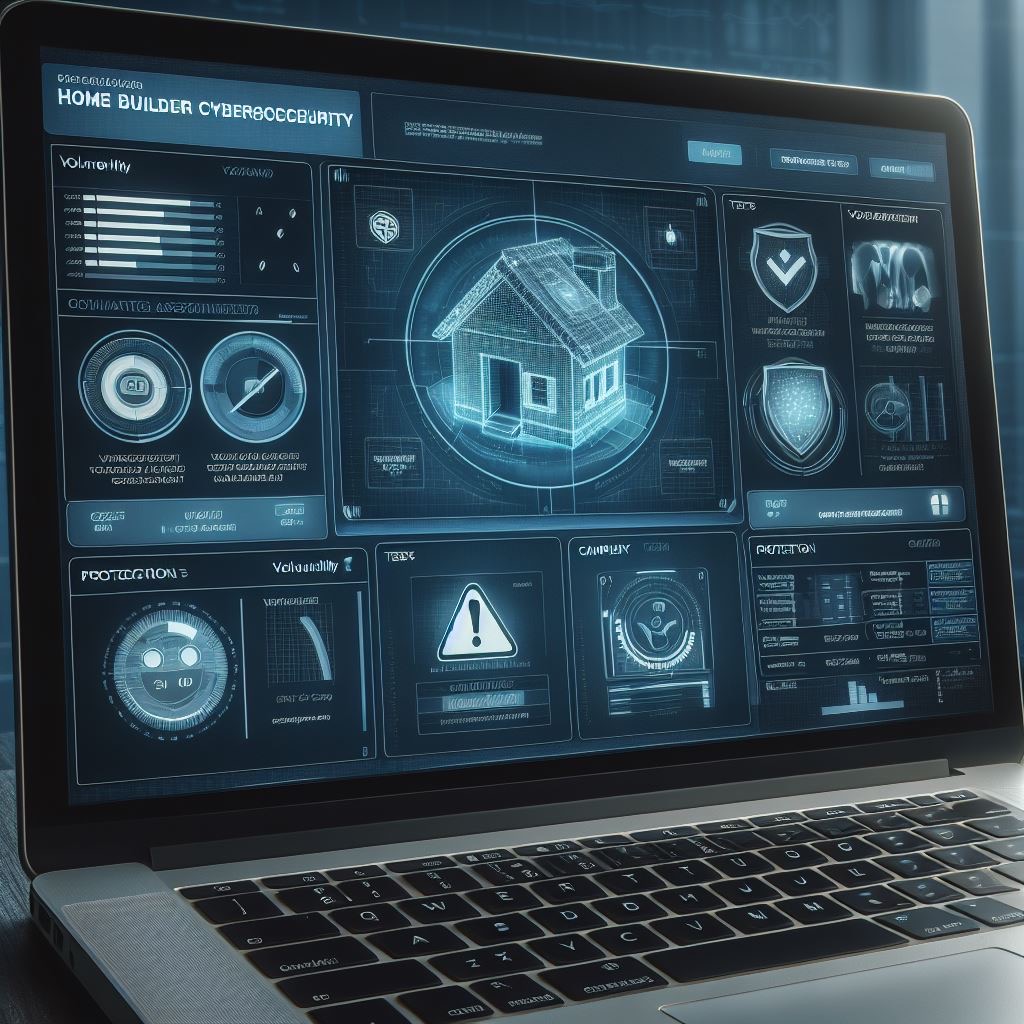
Defying All Odds - Day 5: The Financial Impact of Cybersecurity Breaches in the Construction Industry
“You have to be prepared to fight and finish your own battles.” - Jim Harbaugh
Introduction:
In our our featured article, we explored the thrilling story of a construction company that defied all odds to overcome cyber threats and emerge victorious. Today, we delve deeper into the financial impact of a cybersecurity breach and specifically how it impacts a construction company. Join us on Day 5 of this captivating journey as we uncover the strategies and best practices that will help construction companies protect their digital assets and secure their business against cyber attacks.
Cybersecurity breaches can have severe financial implications for construction companies, leading to direct financial losses, legal liabilities, and damage to brand reputation. In this article, we will delve into the financial impact of cybersecurity breaches in the construction industry, shedding light on the true cost of neglecting cybersecurity measures. Understanding these financial consequences is crucial for construction companies to prioritize cybersecurity and protect their financial stability.
As the construction industry continues to embrace digital transformation and technology advancements, it also becomes increasingly vulnerable to cyber threats. Construction companies are becoming attractive targets for cybercriminals due to the valuable data they possess, including sensitive project information, financial records, and intellectual property.

The Financial Toll of Cybersecurity Breaches:
The financial impact of a cybersecurity breach can be devastating for construction companies. Let's explore some of the key financial consequences:
1. Direct Financial Losses:

A cyber attack can result in significant financial losses, including theft of funds, unauthorized transactions, and ransom demands. Construction companies may also incur costs related to forensic investigations, system repairs, and data recovery.
2. Legal Liabilities:

Cybersecurity breaches can lead to legal liabilities, especially if sensitive customer information or intellectual property is compromised. Construction companies may face lawsuits, regulatory penalties, and fines, further adding to their financial burden.
3. Business Disruption:

A successful cyber attack can disrupt construction operations, causing delays in project timelines and impacting revenue streams. Construction companies may experience downtime, loss of productivity, and additional costs associated with remediation efforts.
4. Reputational Damage:

The reputational damage caused by a cybersecurity breach can have long-lasting financial consequences. Construction companies may lose the trust of clients, partners, and stakeholders, resulting in a decline in business opportunities and potential revenue loss.
Looking for ways to improve your company's Cybersecurity? Download 15 Ways to Prevent a Cyber Attack FREE TRAINING and you can even schedule a FREE 15-Minute Cyber Consult.

Prioritizing Cybersecurity in the Construction Industry:
To protect themselves from the financial impact of cybersecurity breaches, construction companies must prioritize cybersecurity and implement robust measures. Here are some essential steps to consider:
1. Conduct a Cybersecurity Risk Assessment:

Identify and assess potential vulnerabilities and risks within your organization. This assessment will help you understand the potential financial impact of a breach and prioritize mitigation efforts.
2. Develop a Comprehensive Cybersecurity Strategy:

Create a cybersecurity strategy that aligns with your organization's goals and risk tolerance. This strategy should include measures such as employee training, regular software updates, strong password policies, and network security protocols.
3. Invest in Cyber Insurance:

Consider obtaining cyber insurance coverage to mitigate the financial risks associated with cybersecurity breaches. Cyber insurance can help cover the costs of legal liabilities, data recovery, and business interruption.
4. Collaborate with Cybersecurity Experts:

Engage with cybersecurity professionals who specialize in the construction industry. They can provide guidance on best practices, help implement security measures, and conduct regular audits to identify and address vulnerabilities.
Conclusion:
Construction companies cannot afford to overlook the financial consequences of cybersecurity breaches. The true cost of neglecting cybersecurity measures extends beyond immediate financial losses and can have far-reaching implications for their reputation and long-term financial stability. By prioritizing cybersecurity, implementing the necessary measures, and staying informed about the evolving cyber threat landscape, construction companies can protect themselves and mitigate the financial impact of cybersecurity breaches. -> Hmm... Hey ZATIS! :)
Want to know if your construction company is at major risk of getting hacked? Click here for a FREE 15-Minute Cyber Consult.

5 Reasons Your Construction Company Needs a Cybersecurity Risk Assessment. 👊
It is important for construction companies to conduct a cybersecurity risk assessment for several reasons:
1. Protection of sensitive data:
Construction companies handle a vast amount of sensitive data, including financial information, project details, client information, and employee records. Conducting a cybersecurity risk assessment helps identify potential vulnerabilities and ensures appropriate safeguards are in place to protect this data from unauthorized access, data breaches, or theft.
2. Mitigating financial losses:
Cyberattacks can result in significant financial losses for construction companies. These losses can stem from data breaches, ransomware attacks, or the disruption of critical systems. By conducting a cybersecurity risk assessment, companies can identify potential weaknesses in their IT infrastructure and take proactive measures to mitigate the financial risks associated with cyber threats.
3. Maintaining business continuity:
A successful cyber-attack can disrupt construction projects, delay timelines, and impact the overall business operations. By conducting a risk assessment, construction companies can identify potential vulnerabilities and implement robust cybersecurity measures to ensure business continuity. This includes having backup systems, disaster recovery plans, and incident response protocols in place.
4. Protecting reputation and client trust:
Construction companies rely on their reputation and client trust to secure new projects and contracts. A cybersecurity breach can undermine trust, damage the company's reputation, and lead to the loss of clients. By conducting a risk assessment and implementing appropriate cybersecurity measures, construction companies can demonstrate their commitment to protecting client data and maintaining a secure operating environment.
5. Compliance with regulations:
Construction companies may be subject to industry-specific regulations and legal requirements regarding data protection and cybersecurity. Conducting a risk assessment helps identify any gaps in compliance and ensures that the company meets the necessary regulatory obligations.
Overall, conducting a cybersecurity risk assessment allows construction companies to proactively identify and address potential vulnerabilities, protect sensitive data, mitigate financial losses, maintain business continuity, protect their reputation, and comply with relevant regulations.
Other resources to help you get started with Cybersecurity
Start your own Cybersecurity initiative:
Here is a quick checklist to get you started with your Cybersecurity initiative. Remember imperfect action beats inaction, get started and keep pushing for progress and awareness with your people.
Update your software
Secure your files
Require passwords
Encrypt devices
Use multi-factor authentication
Protect your wireless network
Make "SMART SECURITY" your business as usual
Require strong passwords
Train all staff
Have a plan
